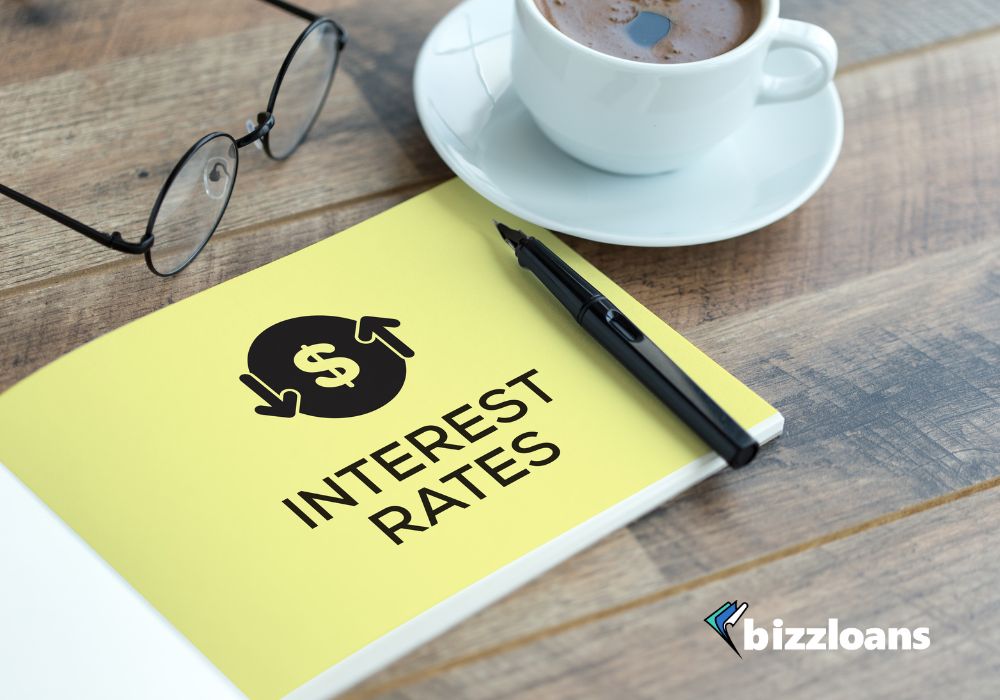Small business loans play a vital role in enabling entrepreneurs to fund their ventures and drive growth. However, understanding the intricacies of these loans, particularly interest rates, is crucial before embarking on the borrowing journey.
Understanding Small Business Loans
Understanding small business loans is paramount for entrepreneurs seeking financial assistance to expand their businesses. Small business loans are essential for covering a variety of expenses, including purchasing equipment, restocking inventory, and expanding the business. It is crucial to conduct thorough research and compare different lenders to find the most favorable terms and interest rates. Moreover, comprehending the loan application process and meeting the requirements is vital in order to increase the likelihood of approval. Entrepreneurs should have a comprehensive understanding of their business’s financials and be prepared to provide relevant documentation. Additionally, it is prudent to consider the repayment terms of the loan and select an option that aligns with the business’s cash flow. Working towards establishing a strong credit history and maintaining a good credit score can significantly enhance the prospects of securing favorable loan terms. By fully understanding small business loans and carefully evaluating the available options, entrepreneurs can make informed decisions and secure the necessary financial support to accomplish their business objectives.
What Is the Interest Rate for Small Business Loans?
Looking to decode the interest rates for small business loans? Let’s dive into the details! Explore the factors that influence these rates and gain valuable insights into securing the best deal for your business. Uncover the secrets behind the numbers and understand how various elements come into play when determining the interest rates for small business loans. Get ready to make informed decisions and optimize your borrowing options.

Factors Affecting Small Business Loan Interest Rates
Factors Affecting Small Business Loan Interest Rates
Creditworthiness of the business: The creditworthiness of a small business plays a significant role in determining the interest rate for a loan. Lenders assess the business’s financial history, including credit score, payment history, and debt-to-income ratio.
Loan amount and duration: The loan amount and duration also influence the interest rate. Generally, larger loans or longer repayment terms carry higher interest rates as they pose higher risks for lenders.
Current economic conditions: The prevailing economic climate can affect small business loan interest rates. During periods of economic growth and stability, interest rates may be lower. However, during economic downturns or when credit markets are tight, interest rates may be higher.
These factors affecting small business loan interest rates are crucial for entrepreneurs and business owners to consider when seeking financing. By understanding these factors, businesses can better prepare themselves and improve their chances of obtaining favorable interest rates.
Types of Small Business Loan Interest Rates
Discover the ins and outs of small business loan interest rates with a focus on the different types. We’ll explore the benefits and characteristics of fixed interest rates, variable interest rates, and the intriguing prime rate + interest rate combination. Unveil how each of these interest rate structures can impact your business’s financial landscape, empowering you to make informed borrowing decisions. Let’s dive into the realm where numbers meet opportunity!
1. Fixed Interest Rate
| 1. Fixed Interest Rate | |
| Definition: | A fixed interest rate is a type of interest rate that remains constant throughout the term of the loan. |
| Characteristics: | A fixed interest rate provides stability and predictability, as the rate does not change regardless of market fluctuations. This allows borrowers to plan their finances accordingly. |
| Benefits: | With a fixed interest rate, borrowers know exactly how much they need to pay each month, making it easier to budget and manage cash flow. It eliminates the risk of sudden increases in interest rates, providing the borrower with peace of mind. |
| Considerations: | While a fixed interest rate offers stability, it may be higher compared to variable interest rates at the time of borrowing. Additionally, if market interest rates decrease in the future, the borrower will not benefit from the lower rates. |
| Availability: | Fixed interest rates are commonly offered by banks, credit unions, and other lenders for small business loans. |
When considering a fixed interest rate for a small business loan, it’s important to carefully analyze your financial situation and long-term goals. Evaluate the current market conditions and determine whether the stability and predictability of a fixed interest rate align with your business’s needs. Additionally, compare the rates offered by different lenders to ensure you secure the most competitive rate for your loan. Keep in mind that while a fixed interest rate provides peace of mind, it may not be the best option if you anticipate market interest rates to significantly decrease in the near future. By understanding the implications of a fixed interest rate and considering your specific business requirements, you can make an informed decision regarding your small business loan.

2. Variable Interest Rate
The variable interest rate is a common feature of small business loans. It is important to understand the following key points:
- Variable interest rates are not fixed and can change over time. They are typically linked to a benchmark rate, such as the prime rate or the LIBOR.
- If the benchmark rate increases, the interest rate on the loan will also increase, resulting in higher monthly payments for the borrower.
- If the benchmark rate decreases, the interest rate on the loan will decrease, potentially leading to savings for the borrower.
- Compared to fixed interest rates, variable rates can be more unpredictable as they are influenced by external factors beyond the borrower or lender’s control.
- Borrowers who are comfortable with some level of uncertainty and have the capacity to handle potential interest rate increases may find variable interest rates advantageous.
Pro-tip: Prior to choosing a variable interest rate for a small business loan, it is vital to carefully assess your cash flow and financial situation to determine if you can accommodate potential fluctuations in monthly payments. Seeking guidance from a financial advisor can be prudent in evaluating the risks and benefits associated with variable interest rates.
3. Prime Rate + Interest Rate
The sub-topic “3. Prime Rate + Interest Rate” can be presented in a table format to provide clear and concise information:
| Prime Rate + Interest Rate |
| The prime rate is the interest rate set by banks and is usually based on the federal funds rate. When it comes to small business loans, the prime rate serves as a benchmark for determining the interest rate. |
| The interest rate for small business loans is often calculated by adding a certain percentage, known as the “spread,” to the prime rate. |
| For example, if the prime rate is 3% and the spread is 2%, the interest rate for the small business loan would be 5%. |
| The prime rate can vary depending on economic conditions and the policies of individual banks. It is important for small business owners to stay updated on changes in the prime rate to understand how it might impact their loan interest rates. |
Pro-tip: When considering small business loans with a prime rate + interest rate structure, it is crucial to compare not only the interest rates offered but also the spreads. A lower spread can result in a lower overall interest rate and potentially save you significant amounts of money over the life of the loan.

How Are Interest Rates for Small Business Loans Determined?
When it comes to small business loans, one burning question often arises: How are interest rates determined? Unveiling the factors that influence these rates is essential for entrepreneurs seeking financial support. In this section, we will dive into three key elements that play a crucial role in shaping interest rates. From the creditworthiness of your business to the loan amount and duration, and even the current economic climate, we’ll uncover what really drives the numbers. Get ready to decode the mystery behind interest rates for small business loans!
1. Creditworthiness of the Business
|
Creditworthiness of the Business | |
|
Credit Score |
Funding Approval |
|
Excellent (750+) |
Higher chances of approval |
|
Good (700-749) |
Good chances of approval |
|
Fair (650-699) |
Approval might depend on other factors |
|
Poor (600-649) |
Approval may be difficult or require additional collateral |
|
Very Poor (below 600) |
Approval may be extremely difficult |
When applying for a small business loan, the creditworthiness of your business is vital in determining your chances of funding approval. Evaluating your business’s credit score is pivotal for assessing your creditworthiness. Having an excellent credit score of 750 or above bodes well for your chances of loan approval. Even with a good credit score ranging from 700 to 749, you still have favorable prospects of approval.
However, if your business has a fair credit score between 650 and 699, getting your loan approved may depend on other factors such as loan amount, duration, and prevailing economic conditions. Conversely, a poor credit score of 600-649 can make the approval process more challenging, requiring additional collateral. For businesses with a very poor credit score below 600, getting loan approval becomes extremely difficult.
To enhance your chances of securing a loan at a favorable interest rate, it is crucial to improve your credit score. This can be achieved by making timely bill payments, reducing debts, and maintaining a low credit utilization ratio. Additionally, shopping around and comparing rates from different lenders can help you find the most favorable interest rate for your small business loan. Providing collateral or a personal guarantee can further enhance your creditworthiness. Lastly, developing a robust business plan that showcases sound financial projections and growth potential can significantly increase your chances of securing a loan at a favorable interest rate.

2. Loan Amount and Duration
When considering a small business loan, it’s important to take into account the loan amount and duration. The loan amount refers to the total funds you are requesting from the lender to support your business needs. The duration, on the other hand, indicates the length of time you will have to repay the loan.
For small loan amounts, typically short-term loans are suitable, which have a duration of less than 1 year. These loans are ideal for immediate financial needs or to bridge a temporary cash flow gap.
Medium loan amounts are better suited for medium-term loans, which have a duration ranging from 1 to 5 years. These loans provide a balance between manageable repayment periods and flexibility in meeting business objectives.
Large loan amounts require long-term loans with a duration of more than 5 years. These loans are often used for significant investment projects or business expansions that require prolonged repayment schedules.
It is crucial to carefully assess your business’s financial situation and objectives to determine the appropriate loan amount and duration. Considering your ability to repay the loan within the designated timeframe is essential to avoid financial strain and setbacks for your business.
3. Current Economic Conditions
The 3. current economic conditions play a significant role in determining the interest rates for small business loans. Here are some key factors to consider:
- Overall economic health: The state of the economy, including factors like inflation, GDP growth, and employment rates, can affect interest rates. During a strong economy, interest rates are likely to be higher due to increased demand for loans.
- Central bank policies: The actions of central banks, such as the Federal Reserve in the US, can influence interest rates. When central banks raise or lower their benchmark interest rates, it can impact the rates offered by commercial banks to small businesses.
- Market conditions: Supply and demand dynamics in the lending market also play a role. If lenders perceive increased risk in the market or foresee economic uncertainty, they may raise interest rates to compensate for the potential losses.
- Government regulations: Government policies and regulations can indirectly impact interest rates by affecting business confidence, investment decisions, and the overall stability of the economy.
- Industry-specific trends: Economic conditions within specific industries or sectors can affect interest rates. Lenders may adjust rates based on the expected performance and risk profiles of businesses operating in different sectors.

It’s important for small business owners to stay informed about the current economic conditions to make informed decisions about borrowing and managing their finances effectively.
Historically, economic downturns have led to lower interest rates as central banks implement expansionary monetary policies to stimulate the economy. For example, during the 2008 global financial crisis, the Federal Reserve in the US lowered interest rates to historically low levels in an attempt to encourage borrowing and investment. However, economic recoveries and periods of economic growth often lead to higher interest rates as central banks aim to prevent inflation and control the pace of economic expansion. Understanding these economic conditions can help small business owners navigate the lending landscape and make strategic decisions regarding their financing needs.
What Are the Typical Interest Rates for Small Business Loans?
The typical interest rates for small business loans can vary depending on various factors such as the lender, the creditworthiness of the business, and the loan term.
What Are the Typical Interest Rates for Small Business Loans? Here are some general guidelines to keep in mind:
1. Traditional Bank Loans: Interest rates for small business loans from traditional banks can range from 4% to 6%. These loans are typically secured by collateral and require a strong credit history.
2. Small Business Administration (SBA) Loans: SBA loans offer more favorable interest rates for small businesses. Interest rates for SBA loans commonly range from 6% to 8%. These loans require extensive paperwork and can take longer to process.
3. Online Lenders: Online lenders provide convenience and quicker funding options. However, the interest rates may be higher, typically ranging from 8% to 25%. These lenders often consider alternative factors for loan approval.
4. Alternative Financing Options: Non-traditional lenders like peer-to-peer lending platforms and crowdfunding websites have become popular. Interest rates can vary widely, depending on the specific platform and the creditworthiness of the business.
Remember, these interest rates are averages and can fluctuate depending on the financial health of the business and the prevailing market conditions. It’s essential to explore multiple financing options and compare interest rates to find the best fit for your small business loan.

How to Get the Best Interest Rate for a Small Business Loan?
Looking to secure a small business loan with the best interest rate? Look no further! In this section, we’ll explore actionable tips and strategies that can help you achieve just that. From improving your credit score to shopping around and comparing rates, we’ll guide you through the steps of finding the most favorable interest rate for your small business loan. Stay tuned as we also discuss the importance of collateral or personal guarantee, and the value of building a strong business plan. Get ready to decode the interest rates for small business loans!
1. Improve Credit Score
To improve your credit score and increase your chances of getting the best interest rate for a small business loan, you should consider taking the following steps:
- Review your credit report. Obtain a copy of your credit report and carefully review it for any errors or inaccuracies. Dispute any incorrect information and work to resolve any outstanding debts or judgments that may be negatively impacting your credit score.
- Pay bills on time. Consistently make timely payments for all your credit obligations, including loans, credit cards, and utilities. Late payments can significantly lower your credit score and make it more challenging to secure a low-interest loan.
- Pay down debt. Reduce your overall debt by making additional payments or increasing your monthly payments. Lowering your debt-to-income ratio shows lenders that you are financially responsible and can manage your obligations.
- Avoid new credit applications. Limit the number of new credit applications you make, as multiple inquiries can negatively impact your credit score. Instead, focus on improving your existing credit and financial stability.
- Establish a long credit history. Lenders typically prefer borrowers with a long credit history. If you are new to credit, consider opening a secured credit card or becoming an authorized user on someone else’s credit card to begin building a positive credit history.
- Diversify your credit. Having a mix of different types of credit, such as credit cards, installment loans, and mortgages, can positively impact your credit score. However, only take on credit that you can manage responsibly.
2. Shop Around and Compare Rates
To find the best interest rate for your small business loan, shop around and compare rates.
Researching multiple lenders and financial institutions will allow you to see what interest rates they offer.
When considering a loan, take into account the APR (Annual Percentage Rate) which includes both the interest rate and any additional fees.
To determine the total cost of borrowing, request loan quotes from different lenders and compare them.
While evaluating a loan, consider the terms and conditions including the repayment period and flexibility.
Keep in mind that lower interest rates may have stricter eligibility criteria or require collateral.
When assessing loan options, remember to consider factors such as customer service and reputation, not just interest rates.
Ensure you understand any potential penalty fees for early repayment or missed payments.
Consider consulting with a financial advisor or loan specialist to assist you in navigating the process.

3. Provide Collateral or Personal Guarantee
When seeking a small business loan, it is important to provide collateral or a personal guarantee in order to increase your chances of approval and secure better loan terms. Here are the steps you need to follow to provide collateral or a personal guarantee:
- Evaluate your assets: Take an inventory of your business and personal assets that can be used as collateral. This may include real estate, equipment, inventory, or accounts receivable.
- Determine the value: Get an appraisal or estimate the value of the assets you plan to use as collateral. This will help the lender assess the security of the loan.
- Prepare documentation: Gather documentation supporting the ownership and value of your collateral. This may include property titles, appraisals, or financial statements.
- Meet with the lender: Present your collateral and documentation to the lender during the loan application process. Discuss the terms and conditions of the loan, including the interest rate and repayment schedule.
- Sign an agreement: If the lender approves your loan application, you will need to sign an agreement that outlines the use of collateral and the consequences in the event of default.
Providing collateral or a personal guarantee shows the lender that you have assets that can be used to repay the loan if your business is unable to. By doing so, you reduce the lender’s risk and this may lead to a lower interest rate or a higher loan amount. However, it is important to carefully consider the risks involved as failing to repay the loan could result in the loss of your collateral or personal assets.
4. Build a Strong Business Plan
To successfully obtain a small business loan, it is crucial to build a strong business plan by incorporating the following steps:
1. Evaluate your current business model, objectives, and financial projections. Clearly outline your business’s mission, target market, products or services, and competitive advantage.
2. Conduct market research to identify market trends, customer needs, and competitors. Utilize this information to refine your marketing and sales strategies.
3. Develop a detailed financial plan that includes projected revenue, expenses, cash flow, and profitability. This will demonstrate to lenders that you possess a solid understanding of your business’s financials.
4. Create a comprehensive description of your products or services, emphasizing their unique features and benefits. Provide evidence of market demand or customer feedback to support your claims.
5. Include an analysis of your management team’s skills, expertise, and experience. Illustrate how their qualifications will contribute to the success of your business.
6. Outline your marketing and sales strategies, outlining how you intend to reach and attract customers. Additionally, include a budget and timeline for implementing these strategies.
7. Address any potential risks or challenges your business may face and explain how you plan to mitigate them. This demonstrates to lenders that you have carefully considered potential obstacles and have prepared accordingly.
8. Ensure your business plan is well-organized, clearly written, and free of errors. It should maintain a professional, concise, and easily understandable format.
By following these steps and constructing a strong business plan, you will significantly increase your chances of securing a small business loan and achieving your financial goals.

What are the Risks Associated with Small Business Loan Interest Rates?
“What are the Risks Associated with Small Business Loan Interest Rates? Small business loan interest rates carry certain risks that borrowers should be aware of. Firstly, high interest rates can significantly increase the cost of borrowing, making it more difficult for small businesses to repay the loan and potentially leading to financial strain. Additionally, fluctuating interest rates pose a risk of unpredictable monthly payments, making it challenging for businesses to plan their budgets effectively. It’s crucial for borrowers to carefully assess their ability to cover the loan payments, taking into account the potential impact of interest rate changes. Furthermore, some loans may have variable interest rates, meaning they can increase over time, further amplifying the repayment burden. Lastly, defaulting on a loan due to high interest rates can have severe consequences such as damage to credit scores and the possibility of foreclosure or bankruptcy. Small businesses should carefully evaluate the risks associated with interest rates before taking out a loan to ensure they can manage the financial obligations effectively.”
Some Facts About Decoding the Interest Rates for Small Business Loans:
- ✅ Business loan interest rates are determined by factors such as credit score, business financial health, loan amount and term, and collateral. (Source: bizzloans.com.au)
- ✅ To obtain the best interest rate, focus on improving your credit score, strengthening your business financials, shopping around and comparing loan offers, and negotiating with lenders. (Source: bizzloans.com.au)
- ✅ Loan term, business credit score, loan amount, collateral, market conditions, and lender type all impact business loan interest rates. (Source: bizzloans.com.au)
- ✅ A business loan interest rate refers to the percentage of the loan amount that a business will pay as a fee for borrowing the funds. (Source: bizzloans.com.au)
- ✅ Understanding these factors and types of interest rates can help businesses make informed decisions when it comes to borrowing money. (Source: bizzloans.com.au)
Frequently Asked Questions
1. What factors determine the interest rate for small business loans?
The interest rate for small business loans is determined by factors such as credit score, business financial health, loan amount and term, and collateral.
2. How can I save money on interest when taking out a small business loan?
To save money on interest when taking out a small business loan, you can focus on improving your credit score, strengthening your business financials, shopping around and comparing loan offers, and negotiating with lenders.
3. What is the purpose of a business loan calculator?
A business loan calculator is used to estimate monthly payments and total interest paid over the life of the loan. It helps borrowers compare rates and terms, allowing them to make informed decisions and determine loan affordability.
4. What is the meaning of “interest rate markup” in small business loans?
“Interest rate markup” refers to the additional interest charged by lenders above the prime rate. It is one of the factors that determine the overall interest rate for a small business loan.
5. What are factor rates and how do they impact small business loan interest rates?
Factor rates are a flat fee charged by lenders, typically expressed as a decimal or percentage. They represent the cost of borrowing and can impact the overall interest rate for a small business loan.
6. What is the significance of annual percentage rates (APRs) in small business loans?
Annual percentage rates (APRs) in small business loans include the total cost of the loan, including the interest rate and any fees. They provide a comprehensive measure of the loan’s cost and can vary based on factors such as credit score, loan amount, repayment term, and annual revenue.


